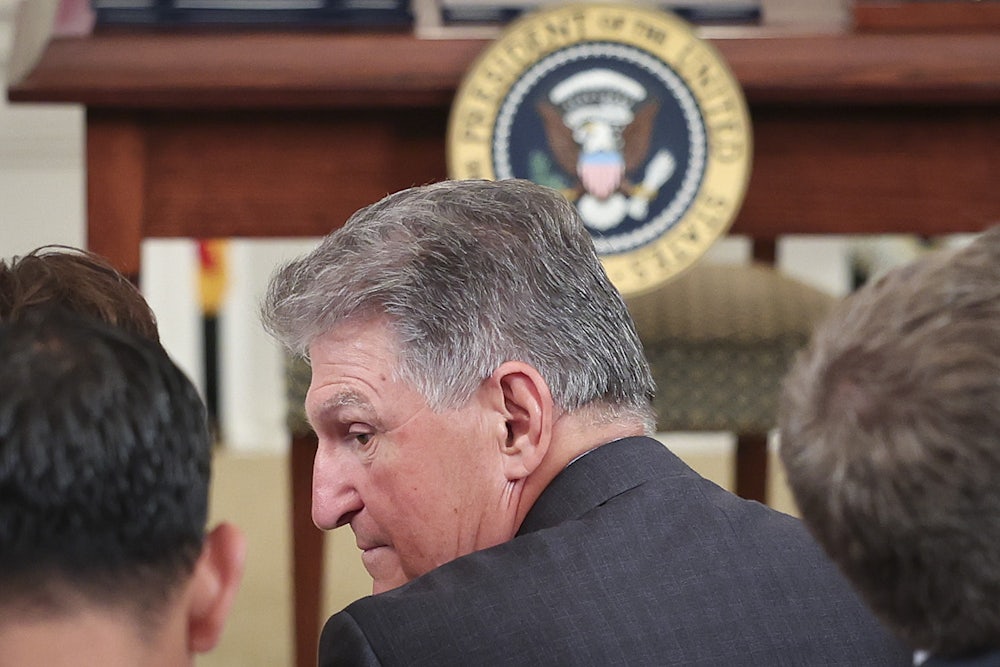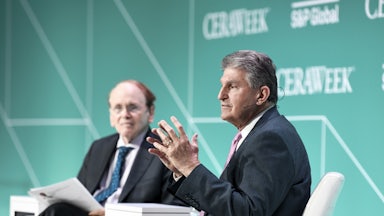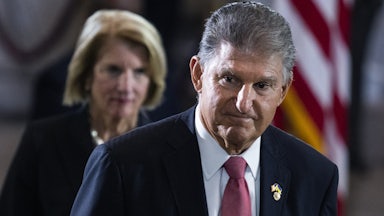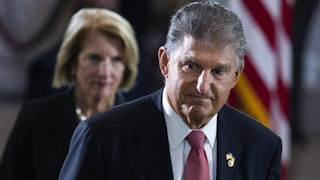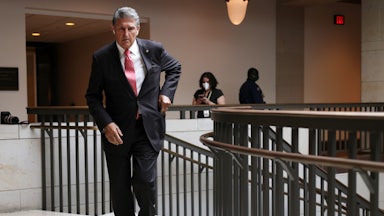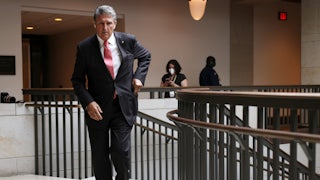Heat waves aren’t glamorous. While wildfires and hurricanes offer awe-inspiring images and B-roll for cable news stories about rising temperatures, people dying of heat stroke—as thousands are predicted to do as record-breaking heat hits the U.K. and Europe—grind to a wet, undignified halt. At 90 degrees you might be more likely to linger over a long lunch, preferring a few more minutes of languid conversation under an umbrella to getting back into the hot sun. At about 95 degrees, in high humidity, our built-in cooling system (sweat) ceases to evaporate and cool you down on its way into the atmosphere. Dry heat of 130 degrees is similarly deadly. Either will prompt vital organs to start shutting down if you sit in it for too long.
Does democracy have a similarly untelegenic breaking point? A recent Pew Research Center poll found that 58 percent of Americans think the federal government is doing too little to address climate change. Eighty-one million of them elected Joe Biden to govern. Joe Manchin—who delivered the final blow to Democratic hopes of climate legislation last week—was elected to his current Senate term with under 300,000 votes. Just nine people sit on the Supreme Court that ruled against the Environmental Protection Agency’s road map for cutting emissions last month. Seven of them attended either Harvard or Yale.
Recent talk about the crisis of democracy in the United States has focused on Trump acolytes storming the Capitol last January—a charismatic blow to democracy but not a particularly representative one. There are no widely televised hearings being held over the fact that our Constitution was written by slaveholders who took minority rule as a given or that only 6 percent of seats in the House of Representatives are considered competitive as the nation and the world hurtles toward climate catastrophe. The U.S. political system is demonstrably incapable, at this point, of reflecting the will of its people. But its incompetence at this task isn’t particularly sexy. And unlike the January 6, 2021, coup attempt, it’s not a discrete event.
Build Back Better’s death looks a little like a dry run: a prolonged, incomprehensible process where political leaders assure us a solution is right around the corner. Until the last minute last week, Democratic insiders on Capitol Hill thought Manchin’s demands—to green-light new fossil fuel infrastructure and slash funding for electric vehicles, in exchange for his vote on the broader spending package—had been satisfied. Yet Manchin’s ever-evolving wish list may never have been intended to do anything other than drag negotiations out for as long as possible. As The New York Times reported, he was able to extract some key wins for donors in the fossil fuel industry along the way, including the Interior Department’s recent plan to offer up new federal lands for oil and gas drilling. And Manchin, recall, is himself a coal baron—a living embodiment of U.S. democracy’s inability to tackle conflicts of interest in lawmaking.
It’s not obvious that there was any way for Democrats to have avoided this stalemate by doing something differently over the last two years. Was there some line congressional Democrats were unwilling to cross in the name of securing a deal? Some idiosyncratic belief held by the West Virginia senator that Majority Leader Chuck Schumer could have better understood and appealed to in their closed-door negotiations? The defining moment might have been when Democratic leadership decided to back the bipartisan infrastructure bill and take centrists and Republicans at their word that they would vote for anything else in exchange.
One thing that is clear is that the problem is much bigger than Joe Manchin. Democrats didn’t win enough votes in the Senate in 2020 to override him, the product of the party’s own long-running ambivalence about governing and a political system where it has gotten increasingly difficult for them to try. They hoped in 2020 that channeling all their energies against Trump—offering few details for how life under Democratic rule is preferable—would win them enough power to carry out an agenda and overpower Republicans. They were wrong.
Manchin is as good a person as any to heap blame onto. He has blood on his hands. It’s comforting to have a single person to focus rage on. But his power to make or break climate policy was years, maybe centuries in the making. Until the real causes are snuffed out—from an undemocratic Constitution to a political system beholden to corporate profits—they’ll just keep boiling us.
